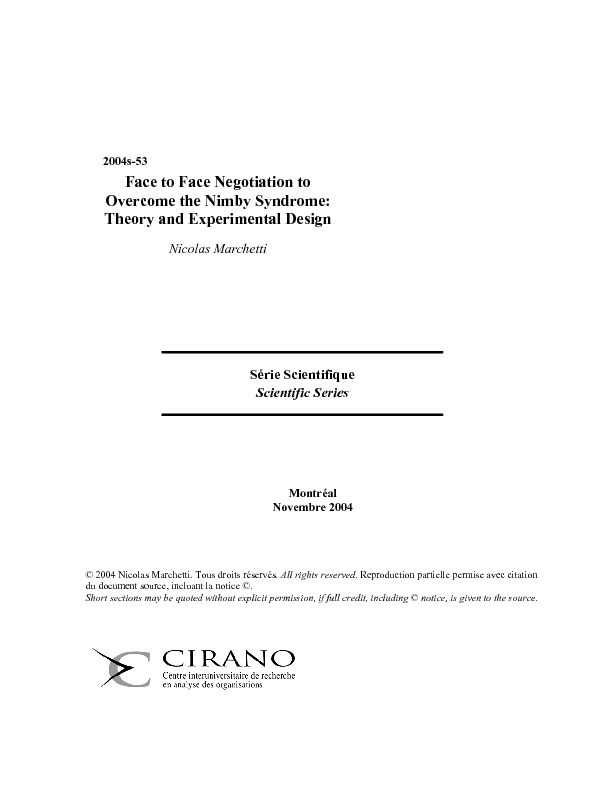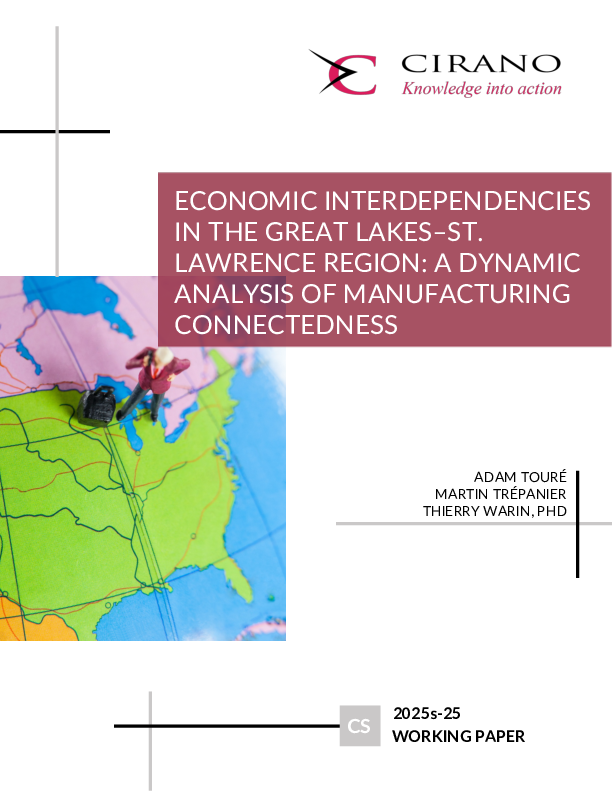Face to Face Negotiation to Overcome the Nimby Syndrome: Theory and Experimental Design
In recent decade, community after community has refused to accept facilities that require large amounts of land and generate local environmental costs such as airports, trash disposal plants or waste incinerators. Faced with this problem economists have used several methods such as lotteries, auctions or insurance policies. However, all those mechanisms have theoretical shortcomings. Therefore, we propose an approach based on face to face negotiation between elected representative. In order to reduce transaction costs, we introduce an arbitrator that proposes surplus distribution and a host community. The main question in this paper is to determine which distribution it has to propose to quickly reach an agreement. To answer this question we revise the traditional structure of cooperative games and explore the predictive power of three generalized solutions by implementing laboratory bargaining experiments
[ - ]




